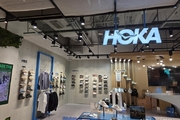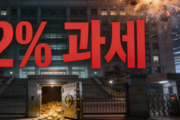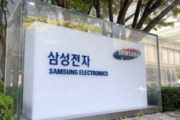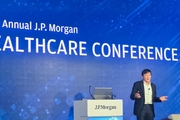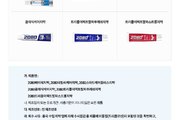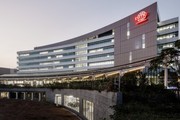
[News Space=Reporter seungwon lee] An unprecedented situation has occurred in which Chairman Jeonggyu Kim of Tire Bank, the number one domestic tire distribution company, and Chairman Hyunbeom Cho of Hankook Tire & Technology, the number one tire manufacturer, were sentenced to three years in prison and detained in court.
The mid-sized business of two giant owners representing the Korean tire industry goes beyond simple personal deviations and exposes the problems in the management structure of the Korean tire industry and the true face of systemic risks.
Kim Jeong-gyu, Chairman of Tire Bank, sentenced to heavy sentence in appeal for 3.9 billion won tax evasion
On July 23, 2025, the Daejeon High Court sentenced Chairman Kim Jeong-gyu to three years in prison and a fine of 14.1 billion won for violating the Act on the Aggravated Punishment, etc. of Specific Crimes (tax evasion), and detained him in court. Chairman Kim was found to have evaded various taxes, including comprehensive income tax worth approximately 3.9 billion won, by disguising the name of his store and omitting cash sales.
The fact that systematic tax evasion behaviors such as issuing false tax invoices occurred repeatedly during this process and that the management style in which the defendant actually attributed all of the dealership's income had a major impact on the sentencing.
Hankook Tire Chairman Cho Hyun-beom, embezzlement and breach of trust worth 20 billion won… Detained in court in first trial
On May 29, 2025, Chairman Cho Hyun-beom of Hankook & Company Group, which controls Hankook Tire & Technology (Hankook Tire), was sentenced to three years in prison and detained in court by the Seoul Central District Court after being found guilty of eight out of nine charges, including breach of trust and embezzlement. Chairman Cho was found guilty of causing 13.1 billion won in losses through unfair transactions through affiliates, using approximately 580 million won of corporate funds for personal use, and lending company funds to an acquaintance's company without permission. The court emphasized that "this is a serious crime abusing the position of the owner's family."
Is it simply an individual deviation or a structural problem in the tire industry?
The gravity of the matter is evidenced by the large-scale misappropriation of funds, repeated misconduct and lack of internal controls in both cases.
In the case of Tire Bank, the characteristics of the industry, such as the strong performance pressure from the head office in the structure centered on direct stores, the sales behavior prioritizing profitability, and the lack of management control, are pointed out as the background that encouraged illegal practices. In fact, it has been confirmed through the testimonies of field employees that the root cause of the past 'intentional damage to wheels' incident was not a simple deviation of the store owner, but rather the excessive performance pressure and enforcement of sales targets from the head office.
In the case of Hankook Tire, the pre-modern management structure dominated by the family of the owner, the inability to internally check and balance the organization, and the vulnerability of corporate governance are the soil for repeated owner risks. Only the corruption related to the owner has repeatedly surfaced since the 2010s, and the characteristic is that the legal risk is structurally inherent in the personnel and management succession structure.
Global Tire Industry: Is Owner Risk Universal?
It is true that the domestic tire industry is particularly prominent, but global tire makers are also not unrelated to controversies over corporate crimes such as owner risk, cartels, and embezzlement.
In the US and Europe, many global companies, including Bridgestone, Michelin, Pirelli, and Goodyear, have recently been involved in large-scale EU investigations and US class action lawsuits for price fixing and antitrust violations. According to lawsuit data, major tire prices in the US increased by 21.4% from 2021 to 2023 alone, exceeding the inflation rate of 70% during the same period.
Although management disputes and personal corruption by owners are more common in Asian companies, cases like the one in Korea where a tire company owner is directly arrested or sentenced to prison for a crime are considered very rare in global top companies.
What is the impact on the Thai industry market?… Declining sales and trust, warning sound of governance
In the case of Hankook Tire & Technology, sales in 2024 were KRW 9.4119 trillion, and operating profit was KRW 1.7622 trillion, recording the highest performance ever. However, the market points out that whenever owner risk arises, the stock price plummets, which is having a negative effect on external credibility and partnerships.
Tire Bank, which has maintained the top spot in the industry based on approximately 400 franchise and direct-managed stores nationwide, saw its sales in 2024 increase by 15% from the previous year (KRW 483.9 billion) to KRW 556.3 billion, and its operating profit also increased by 33.8% from the previous year (KRW 56 billion) to KRW 74.9 billion, significantly improving its profitability. The operating profit ratio was 13.5%, up 1.9%p from the previous year (11.6%).
However, contrary to the company's good performance, there are four lawsuits in total (two lawsuits in which the company is a defendant and two lawsuits in which the company is a plaintiff) and negative issues due to the owner's criminal acts, which are lowering brand trust and leading to strong demands for improved management transparency.
Korea Tire Industry's External Credit Rating Drops... Korea's Position in Global Industry 'Shaken'
Since the arrest of Chairman Cho Hyun-beom, the stock price of Hankook Tire & Technology has experienced negative repercussions such as increased uncertainty, decreased investment value, and a shake-up in the confidence of overseas investors. In fact, the investment report evaluated that “market sentiment and confidence are deteriorating due to legal issues.”
There are growing voices that the 'Korea risk' can be a variable in decision-making processes such as supply chain and quality management in collaboration with global automobile manufacturers (BMW, Mercedes-Benz, etc.).
Another concern is the disruption of global business due to the management vacuum. The arrest of the owner of the largest domestic tire manufacturer leads to a management vacuum and delay in decision-making at the group level, which in turn leads to disruption in strategic decision-making such as global business reorganization and investment in overseas production bases. The ESG (environment, society, and governance) requirements, which have plummeted due to the arrest of the owner, are also likely to have a negative impact on future business operations, and are likely to act as a disadvantageous factor when selecting a global procurement partner.
In the tire industry, domestic owner crime cases clearly reveal negative effects such as decreased global credibility and investment attractiveness, limited partnerships, and business operation gaps.
An official from the domestic tire industry said, "If owner risk and governance risk repeatedly accumulate, the possibility of causing disadvantages in the long-term strategy, credit rating, and partnership sustainability of the Korean tire industry may gradually increase." He added, "It should not be viewed simply as a deviation of an individual or a problem of a specific company, but in the era of global standards, it will be difficult to be free from the label of 'Korea risk' without a solid governance reform and innovation in compliance with global standards."
Without structural reform, there is a constant possibility of 'owner risk' recurring.
The analysis that the recent joint imprisonment of the owners of the two largest domestic tire companies is a complex result of the collapse of the tire industry's chronic governance structure and internal control system, rather than a simple individual deviation, is gaining traction. In both domestic and international cases, objective data and industry opinion have concluded that if the pre-modern governance structure cannot be reformed, owner risk will inevitably be repeated.
An industry insider said, “This chain of owner imprisonment cases is a warning light that has revealed the risks of the overall management structure of the tire industry,” adding, “It cannot be determined based on the simple deviation of an individual owner or the unique characteristics of the industry, and a fundamental reform of the entire industry is urgent.”




